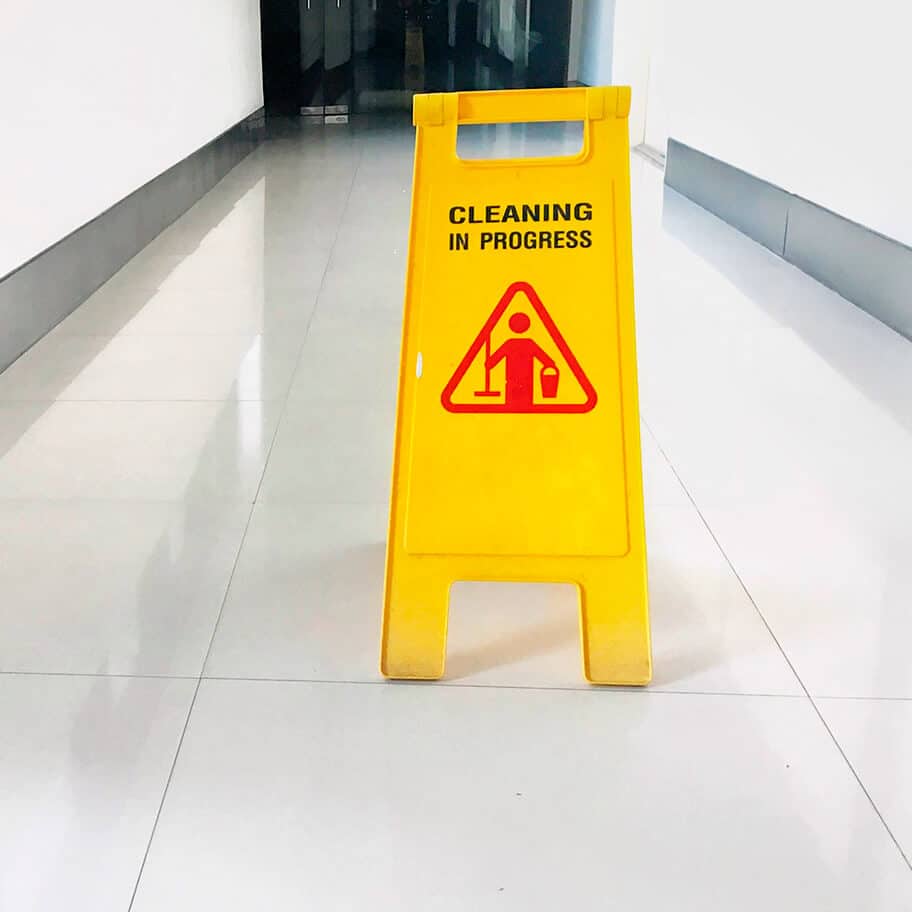Circumstances Where a Slip, Trip or Fall Can Happen
These accidents are completely avoidable where the correct safety measures are in place and your employer may be found liable if it is shown that they were negligent in ensuring a safe working environment for their employees.
Slips
Spills, weather hazards, oily surfaces, surfaces or flooring that is loose or that has inadequate traction are common factors that influence a person slipping the workplace.
Trips
Inadequate lighting, obstructions, uneven flooring, broken handrails on stairways, loose/exposed wiring and other materials can all be factors that influence a person tripping in the workplace, thus resulting in personal injury being sustained.
Avoiding Slips, Trips and Falls at Work
Good housekeeping, quality surfaces and footwear are key factors that prevent accidents in the workplace from occurring. Employees should be reminded to engage in safe practice and procedure in the workplace by employers. Hazardous variables such as clutter or spillage must be reported to prevent a slip, trip and fall accidents in the workplace.
Injuries that can subsequently arise from a slip trip or fall include:
What to do after an accident at work*?
Following an accident at work, there are a number of steps you should follow:
-
Seek medical attention
Your health is your wealth and should be your first priority. Immediately after an accident at work, take a second to assess yourself to determine if you have any injuries and seek the relevant medical attention. If you have sustained a serious injury ensure that you contact an ambulance to attend the scene.
For minor injuries, you must remember that minor injuries where you ‘feel fine’ could progress to more serious injuries in the future. In this case it is always better to be safe than sorry and advisable that you go to your nearest accident and emergency (A&E) or local GP to be checked out.
-
Report the accident
It is critical to report the accident to your superior, i.e. a supervisor or manager on site. It doesn’t matter how small you think the accident may be. By law, accidents at work are required to be reported if the person is injured and can’t perform their daily work tasks for more than three days. Make sure to fill out an Accident Report Form. This can be used for reference in any medical examination and will also prevent any similar accidents from happening in the future.
-
Identify any witnesses
If possible, try to collect the contact details of anybody that witnessed your accident. This may be of use if you do decide to pursue a workplace accident claim. It is also useful to find out if there is any CCTV in the area where your accident happened.
-
Document the incident
It is important that you collect all the relevant information in connection with your accident:
- How the accident happened
- Details of any witnesses
- If there are any CCTV recordings of your accident
- Take pictures of where the accident happened and what caused your accident
-
Speak to a workplace accident solicitor
If you are considering moving forward with a workplace accident claim for any personal injuries sustained, it is advisable that you speak with a workplace accident claims solicitor as soon as possible. If you are proceeding with a claim, the first step will be submitting your claim to the Personal Injuries Assessment Board (PIAB) for assessment. A workplace accident solicitor can help you in preparing your application to the Personal Injuries Assessment Board (PIAB) and ensure that you follow the process in the correct format, meaning that you can move forward with your claim quickly without unnecessary delays.
It is important to remember to keep copies of any expenses that you have incurred as a result of the accident. It is also imperative to retain copies of medical reports or incident report forms where possible as you will need them when making a claim.

